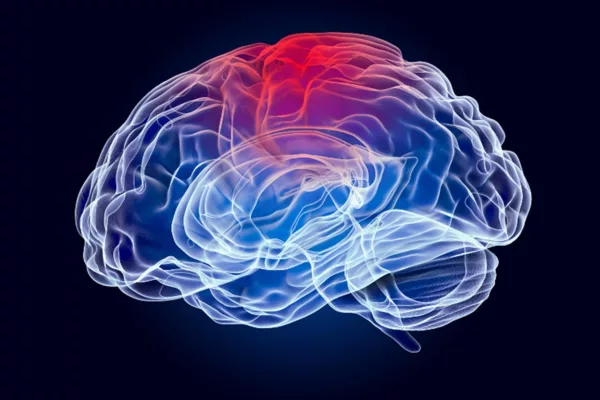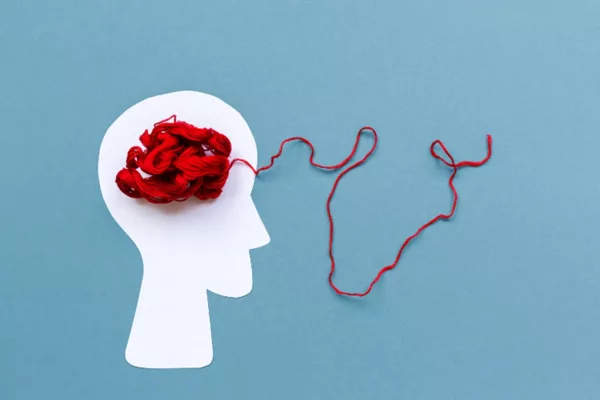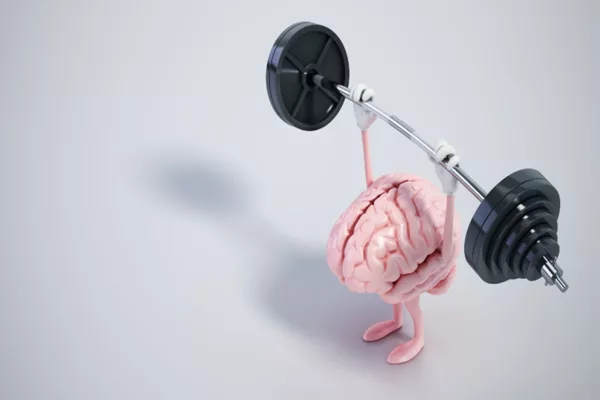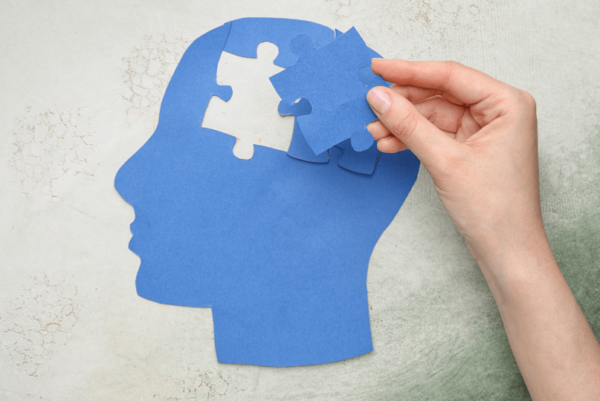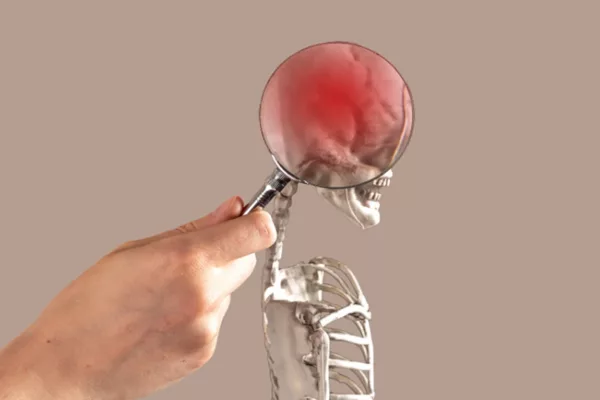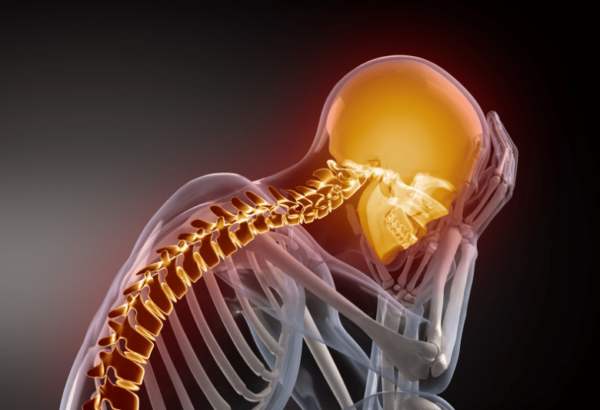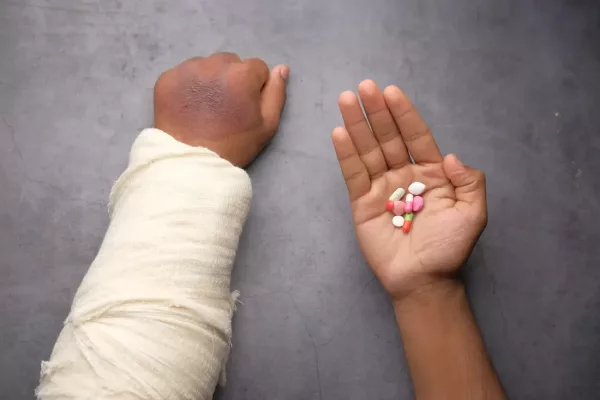Post Concussion Syndrome and Extreme Fatigue
Defining Post-Concussion Syndrome (PCS) and Extreme Fatigue
Post-Concussion Syndrome (PCS) is a complex disorder that can emerge following a mild traumatic brain injury, commonly known as a concussion. PCS is characterized by an array of physical and cognitive symptoms that can persist for weeks, months, or even years after the initial injury. These symptoms can include headaches, dizziness, memory problems, difficulty concentrating, and changes in mood.
One of the most debilitating symptoms of PCS is extreme fatigue. This isn’t your typical tiredness that can be alleviated with a good night’s sleep. Instead, it’s a profound exhaustion that doesn’t improve with rest and can be triggered or worsened by demanding cognitive tasks.
This fatigue can manifest in several ways such as cognitive fatigue, physical fatigue, and overwhelming fatigue. Cognitive fatigue refers to the mental effort required to perform everyday cognitive tasks such as reading, holding a conversation, or making decisions. Physical fatigue, on the other hand, manifests as muscle weakness, decreased stamina, and a diminished ability to engage in physical activities. Overwhelming fatigue is an intense form of exhaustion that can make even the simplest tasks seem daunting.
Understanding the Prevalence and Impact of PCS and Fatigue:
PCS and extreme fatigue are common consequences of mild traumatic brain injuries, affecting a significant number of individuals who have suffered a concussion. The prevalence of PCS varies widely due to differences in diagnostic criteria and study populations, but it’s estimated that anywhere from 10% to 50% of individuals who sustain a mild traumatic brain injury may develop PCS.
The impact of PCS and extreme fatigue on an individual’s daily life can be significant. The cognitive difficulties associated with PCS can affect an individual’s ability to work, study, and engage in normal activities. Extreme fatigue can further exacerbate these challenges, limiting an individual’s physical and mental activity and reducing their quality of life. Additionally, PCS and extreme fatigue can take a toll on an individual’s mental health, potentially leading to feelings of frustration, anxiety, and depression.
Navigating the Challenges of Living with PCS and Extreme Fatigue:
Living with PCS and extreme fatigue can be challenging, but with the right resources and strategies, these challenges can be managed. Cognitive therapy can help improve cognitive function and reduce mental fatigue by teaching strategies to manage symptoms and cope with cognitive difficulties. Regular, moderate physical activity can help improve physical stamina and energy levels, while good sleep hygiene can improve sleep quality and reduce fatigue.
In some cases, medications may be used to manage symptoms. However, it’s important to remember that everyone’s experience with PCS is unique and what works for one person may not work for another. Therefore, treatment should be tailored to the individual’s needs and symptoms.
With the right support, individuals with PCS can manage their symptoms, improve their quality of life, and regain control over their energy levels. Understanding the nature of PCS and its associated fatigue is the first step towards recovery.
Understanding the Science Behind PCS and Fatigue:
The Aftermath of a brain injury
Mild Traumatic Brain Injury (mTBI) vs. Traumatic Brain Injury (TBI):
Traumatic Brain Injury (TBI) is a broad term that describes a range of injuries that occur due to an external force impacting the head, causing damage to the brain. These injuries can vary significantly in terms of severity, symptoms, and long-term effects. To better understand and classify these injuries, healthcare professionals often categorize them as either mild traumatic brain injuries (mTBI) or moderate/severe traumatic brain injuries.
Mild Traumatic Brain Injury (mTBI):
Mild traumatic brain injury, commonly known as a concussion, is the most common type of TBI. It occurs when a sudden movement or jolt causes the brain to move within the skull, leading to temporary changes in brain function.
Symptoms of mTBI can include confusion or disorientation immediately following the injury, headaches, dizziness, blurred vision, difficulty concentrating, memory problems, mood swings, and fatigue. While these symptoms are usually temporary, some individuals may experience prolonged symptoms, a condition known as post-concussion syndrome.
Despite being termed “mild”, mTBIs should not be taken lightly. They still represent a serious injury to the brain and require appropriate medical attention and management to prevent potential complications.
Moderate/Severe Traumatic Brain Injury:
Moderate to severe TBIs occur when a strong external force impacts the head, causing significant damage to the brain. This can result from events such as car accidents, falls from significant heights, or violent assaults.
Symptoms of moderate/severe TBI can include loss of consciousness for several minutes to hours, persistent or worsening headaches, repeated vomiting, seizures, inability to awaken from sleep, dilation of one or both pupils, slurred speech, weakness or numbness in the limbs, loss of coordination, and profound confusion.
These injuries can lead to long-term complications or death. Individuals who survive severe TBI may have to cope with significant cognitive, behavioral, and physical disabilities, and they often require intensive rehabilitation to regain function.
Comparing mTBI and TBI:
While both mTBI and moderate/severe TBI involve injuries to the brain, they differ significantly in terms of severity, symptoms, treatment, and prognosis.
Severity: mTBI is considered less severe, typically causing temporary changes in brain function. Moderate/severe TBIs are more serious, causing longer-lasting or permanent changes in brain function.
Symptoms: While there is some overlap in symptoms, moderate/severe TBIs generally present with more serious and noticeable symptoms, such as prolonged loss of consciousness, seizures, and significant cognitive impairment.
Treatment: Treatment for mTBI usually involves rest and over-the-counter pain relievers for headaches, along with monitoring for any worsening symptoms. Moderate/severe TBIs often require immediate emergency care, potentially including surgery to prevent further brain damage, followed by long-term rehabilitation.
Prognosis: Most individuals with mTBI recover fully with appropriate management, although some may experience ongoing symptoms. The prognosis for moderate/severe TBI is more variable, depending on the extent of the injury. Some individuals may make a good recovery, while others may be left with significant disabilities.
Impact of Brain Injury on Brain Function and Energy Metabolism
Traumatic brain injury (TBI) triggers a series of complex changes in the brain, impacting both its function and energy metabolism. This disruption can influence cognitive abilities, physical health, and overall quality of life.
Brain Function after Brain Injury:
Brain injuries can cause significant alterations in brain function. Depending on the severity and location of the injury, individuals may experience symptoms such as confusion, memory loss, difficulty concentrating, mood swings, and even seizures. In severe cases, TBIs can lead to long-term cognitive impairments and disabilities. It’s also worth noting that these functional changes can lead to lesion expansion and diffuse neuronal loss across the injured brain, potentially worsening functional outcomes for patients (source).
Energy Metabolism after Brain Injury:
One of the critical aspects affected by a TBI is the brain’s energy metabolism. The brain primarily relies on glucose and oxygen for its energy needs. Following a TBI, there is often a reduction in glucose metabolism, leading to an energy crisis within the brain (source).
In fact, an increase in glucose metabolism post-TBI leads to increases in both lactate and pyruvate, as opposed to a shift towards one or the other (source). This suggests a metabolic derangement where the brain is unable to effectively use glucose for energy production, leading to energy deficits.
The brain attempts to compensate for this energy deficit by increasing the metabolism of lactate, a concept known as “lactate as energy on demand” (source). Despite this compensatory mechanism, the energy crisis in the brain persists, potentially contributing to the cognitive impairments observed in TBI patients.
Studies and Insights from Functional Magnetic Resonance Imaging (fMRI)
- Functional Magnetic Resonance Imaging (fMRI) is a powerful tool used in neuroscience research to non-invasively study brain function. It allows researchers to visualize and understand the neural activities associated with various cognitive processes, behaviors, and conditions. Below are some recent studies and insights gained from fMRI:
- Emotions in Decision-Making: An fMRI study investigated the role of emotions in decision-making, specifically related to employer brands. The findings can help fill gaps in understanding the dual-process theory and decision-making research.
- Design Studies: Research focused on methodological considerations and challenges in conducting fMRI design studies, offering recommendations for improving research quality.
- Alzheimer’s Disease: A study utilized fMRI to explore neural networks in patients with autosomal dominant Alzheimer’s Disease, providing valuable insights into the disease’s progression and potential therapeutic targets.
- Combined Recording Studies: Research combined fMRI and functional near-infrared spectroscopy (fNIRS) to offer more comprehensive insights into brain function.
- Physics of fMRI: An article delved into the physics of fMRI, discussing its superior spatial and temporal resolution compared to other neuroimaging techniques like PET.
- Food Cues: An fMRI study examined neural responses to visual food cues, contributing to our understanding of eating behaviors and potential interventions for eating disorders.
- Braille Reading: Research used fMRI to explore how blind individuals “see” Braille, offering fascinating insights into neuroplasticity.
- Music Tempo: A study explored the role of music tempo in decision-making, demonstrating the intricate relationship between auditory stimuli and cognitive processes.
- Clinical Potential: An article discussed the clinical potential of fMRI, suggesting that more pathophysiological insight is needed before fMRI can become a common clinical tool.
- Solving Riddles: An fMRI study investigated the dynamic neural network involved in solving Chinese ‘chengyu’ riddles, shedding light on the neural activity during different periods of insight.
These studies exemplify the versatility and power of fMRI as a research tool, providing valuable insights into various aspects of brain function and potentially paving the way for new treatments and interventions for neurological and psychiatric conditions.
The Fatigue Enigma
Differentiating Normal vs. Pathological Fatigue After Brain Injury
Differentiating between normal and pathological fatigue after a brain injury is a complex task that requires careful consideration of various physiological, psychological, and cognitive factors.
Normal Fatigue After Brain Injury:
Fatigue is a common symptom following a traumatic brain injury (TBI), often described as a profound physical and mental exhaustion. It’s considered a universal response, part of the body’s natural healing process, and generally improves over time with rest and appropriate management.
Pathological Fatigue After Brain Injury:
In contrast, pathological fatigue is persistent, severe, and does not improve with rest, significantly impacting an individual’s quality of life. It’s often associated with chronic fatigue syndrome, which can develop following a traumatic brain injury.
Differentiating Between Normal and Pathological Fatigue:
Several symptoms consistently differentiate depressed patients from non-depressed patients after a TBI. These include fatigue, frustration, and poor concentration.
Moreover, certain neuropsychological deficits such as poor concentration, irritability, and memory problems have been found in patients who are classified as having a good recovery after a closed head injury, suggesting that these symptoms could be related to pathological fatigue.
Furthermore, attention deficits in brain-injured patients have been linked to exhaustion rather than boredom, indicating a potential marker for pathological fatigue.
Implications:
Understanding the difference between normal and pathological fatigue after a brain injury is crucial for appropriate treatment and management. Persistent or pathological fatigue may signal underlying issues such as depression, chronic fatigue syndrome, or subtle neuropsychological deficits that require targeted interventions. Therefore, recognizing and addressing these symptoms is vital for improving patient outcomes following a TBI.
Exploring Cognitive Fatigue vs. Physical Fatigue
Cognitive fatigue and physical fatigue are two distinct, yet interconnected forms of exhaustion that significantly impact an individual’s function and well-being. Here’s a closer look at each:
Cognitive Fatigue:
Cognitive fatigue is defined as the deterioration in the ability to think effectively and maintain focus. It often results from inadequate sleep or when sleep and activities fall outside of our biological need to consistently sleep at night and be active during the day.
Symptoms of cognitive fatigue can include difficulty concentrating, forgetfulness, and reduced problem-solving abilities. Prolonged mental exertion, such as studying for long periods or working in a demanding job, can lead to cognitive fatigue.
Physical Fatigue:
Physical fatigue, on the other hand, is often the result of overtraining or lack of sleep. It manifests as a decrease in physical performance, typically characterized by muscle weakness, slower reaction times, and decreased endurance.
Connection Between Cognitive and Physical Fatigue:
Interestingly, research has shown that physical fatigue tasks not only increase pain and perceived physical fatigue but also affect perceived cognitive fatigue. Similarly, cognitive fatigue tasks enhance perceived physical fatigue, indicating a shared demand between cognitive and physical tasks.
The Role of the Ascending Reticular Activating System (ARAS) and Basal Ganglia
The Ascending Reticular Activating System (ARAS) and the Basal Ganglia are two essential components of the brain that play crucial roles in several physiological processes.
The Ascending Reticular Activating System (ARAS):
The ARAS is a complex network of neurons located in the brainstem. It plays a pivotal role in maintaining wakefulness and attention. The ARAS receives input from multiple sensory modalities and projects to various regions of the brain, including the cerebral cortex, thalamus, and hypothalamus.
One of the main functions of the ARAS is the regulation of the sleep-wake cycle. Through its connections with the thalamus and cortex, it helps maintain a state of wakefulness and alertness. Damage to the ARAS can lead to disorders like coma and other altered states of consciousness.
The Basal Ganglia:
The basal ganglia are a group of subcortical nuclei involved in a variety of functions, including motor control, learning, and reward processing. The primary components of the basal ganglia include the striatum, globus pallidus, substantia nigra, and subthalamic nucleus.
The basal ganglia play a significant role in voluntary motor control by inhibiting muscle contractions until they are needed for specific movements.
They are also involved in procedural learning, habit formation, and reward-based learning. Disorders of the basal ganglia, such as Parkinson’s disease and Huntington’s disease, often result in motor symptoms like tremors, rigidity, and bradykinesia.
Interaction between ARAS and Basal Ganglia:
While the ARAS and basal ganglia have distinct roles, they interact closely within the brain’s complex network. For example, the ARAS receives input from the basal ganglia, which can influence alertness and attention levels.
Conversely, alterations in the activity of the ARAS can impact motor control through its connections with the basal ganglia. Understanding these interactions is crucial for understanding various neurological conditions and developing effective treatments.
The Relentless Grip of Extreme Fatigue
Symptoms and Triggers:
Overwhelming Fatigue and Difficulty Concentrating
Fatigue in post-concussion syndrome is typically experienced as a profound sense of tiredness, either mental or physical, and can be accompanied by feelings of exhaustion, energy depletion, or low endurance.
Stress can intensify this fatigue and may also worsen other post-concussion symptoms like headaches and concentration difficulties. Overwhelming fatigue and difficulty concentrating can be symptoms of various health conditions, both physical and mental. There may be other reasons such as below:
1. POTS (Postural Orthostatic Tachycardia Syndrome): This condition can cause extreme fatigue and cognitive difficulties, such as trouble concentrating and thinking straight.
2. Depression: Fatigue, lack of motivation, and trouble focusing are common symptoms of depression.
3. Chronic Fatigue: Unexplained, persistent, and relapsing exhaustion is a hallmark of chronic fatigue syndrome. This condition can also lead to cognitive issues like difficulty concentrating.
4. Brain Fog: Brain fog, a symptom of various medical conditions, involves memory problems, a lack of mental clarity, and an inability to focus.
5. Cognitive Fatigue: This form of fatigue primarily affects mental processes, leading to symptoms like forgetfulness, increased mistakes, and trouble concentrating.
6. Myalgic Encephalomyelitis/Chronic Fatigue Syndrome (ME/CFS): Extreme physical tiredness and difficulty focusing on more than one thing at a time can be symptoms of ME/CFS .
7. General Fatigue: Chronic tiredness or lack of energy can stem from a variety of causes and can lead to cognitive difficulties.
8. Cognitive Dulling: This form of mental fatigue leads to difficulty concentrating, decreased productivity, and emotional decline.
Brain Fog and Cognitive Impairments
“Brain fog” and cognitive impairments are terms often used to describe a range of cognitive function issues. These can include confusion, short-term memory loss, dizziness, and inability to concentrate or think clearly.
Patients with chronic fatigue syndrome (CFS) often describe their cognitive impairments as “brain fog”. This term is used to describe the feeling of being “in a fog” due to cognitive dysfunction, including memory changes and problems with concentration.
It’s important to note that brain fog and dementia are different. The cloudy thinking associated with brain fog differs from the cognitive problems that occur with dementia.
Sleep Disorders and Disrupted Energy Levels
Sleep disorders can significantly disrupt energy levels, affecting both immediate and long-term health. The disruption of sleep can intensify stress responses, lead to physical health issues, diminish life quality, and result in emotional problems.
Metabolic imbalances are also linked with sleep deficiencies and circadian rhythm disruptions, which could potentially lead to weight gain, obesity, and even type 2 diabetes.
A variety of factors can trigger sleep disorders, all of which interfere with the normal sleep-wake cycle. These factors can include deficiencies in certain chemicals or minerals.
It is established that there’s a correlation between the quality and quantity of sleep with the basal metabolic rate (BMR) and energy usage.
Insufficient or poor-quality sleep can result in fatigue, decreased energy, irritability, among other health issues. Sleep deprivation can compromise mental abilities and pose risks to physical health.
Research on rodents has demonstrated that sleep restriction and disturbances can lead to an increase in total daily energy expenditure.
Certain sleep disorders, such as hypersomnias, can make individuals oversleep while still feeling tired, regardless of the amount of sleep they get.
There’s a harmful cycle involving obesity and sleep disorders where obesity can induce sleep disturbances, which then contribute to weight gain due to reduced energy levels and biological predispositions.
Everyday Activities and Overexertion
Post-concussion, everyday activities and overexertion need to be carefully balanced. After a concussion, exercise can aid recovery, but it’s important to manage the intensity of activities to avoid overexertion.
Exercise intolerance, characterized by symptoms worsening with physical activity, is common after a concussion. This is believed to result from dysfunction in the autonomic nervous system.
The Buffalo Concussion Treadmill Test is a commonly used post-recovery exercise protocol. It involves gradually increasing physical activity under controlled conditions.
Returning to sports and other strenuous activities should only happen with the approval and supervision of a healthcare provider.
Recent studies suggest that supervised exercise could aid in faster recovery from sports-related concussions.
A graded return to daily activities is more beneficial than rest after the first 24–48 hours following a concussion.
The guidelines for returning to activities suggest starting with light aerobic exercise to increase heart rate.
Research shows that individuals with a concussion can usually return to their daily routines over time, making small, graduated increases in activity.
Current concussion management strategies embrace light exercise, which has been shown to be safe and potentially beneficial for recovery.
If you’re recovering from a concussion and feeling overexerted, it’s crucial to consult with a healthcare professional to ensure you’re managing your recovery effectively.
Managing Triggers and Reducing Fatigue
Managing triggers and reducing fatigue post-concussion is an essential part of the recovery process. Here are some strategies based on various sources:
- Identify and Manage Triggers: Pay attention to what exacerbates your fatigue, such as certain activities or environments. Learn to identify early signs of fatigue like increased irritability or distraction, and stop an activity before fatigue sets in.
- Balance Activity and Rest: Striking a balance between activity and rest can help manage fatigue. Short rest breaks throughout the day can recharge your energy levels and stave off mental exhaustion.
- Stress Reduction: Stress can increase fatigue and worsen post-concussion symptoms. Techniques such as meditation, mindfulness, and breathing exercises can help reduce stress and improve mental and physical health.
- Exercise: Gradually introducing exercise into your routine can help manage fatigue. However, it’s crucial to ease into it and not overexert yourself.
- Diet: Consuming energy-boosting foods can help combat fatigue. Consult with a dietitian or healthcare professional to create a meal plan that works for you.
- Sleep Management: Poor sleep can exacerbate fatigue. If you’re having trouble sleeping, consider speaking to a sleep specialist.
- Cognitive Behavioral Therapy (CBT): Recent research has found that CBT can be effective in managing post-concussion fatigue.
Managing PCS and Fatigue: A Multifaceted Approach:
Rest and Rehabilitation
Prioritizing Good Sleep Hygiene and Quality Sleep
- Prioritizing good sleep hygiene and quality sleep is crucial for your overall health and well-being. Here are some ways you can enhance your sleep habits:
- Maintain a Consistent Sleep Schedule: Make an effort to go to bed and wake up at the same time each day, including weekends. This routine can help regulate your body’s internal clock, leading to improved sleep.
- Create a Calm Environment: Your bedroom should be dark, quiet, and cool. You might find using earplugs, an eye mask, or a white noise machine beneficial. Also, ensure your mattress and pillows are comfortable.
- Restrict Daytime Naps: Extended daytime naps can disrupt nighttime sleep. If you need to nap, try keeping it short – about 20 to 30 minutes – and preferably in the early afternoon.
- Engage in Regular Physical Activity: Regular exercise can help you fall asleep quicker and deepen your sleep.
- Monitor Your Eating Habits: Aim to not go to bed hungry or overly full, as both could cause discomfort and keep you awake. Also, limit fluid intake before bed to avoid disruptive trips to the bathroom during the night.
- Manage Concerns: Attempt to address any worries or concerns before bedtime. Basic stress management techniques, such as getting organized, setting priorities, and delegating tasks, might be helpful.
- Limit Exposure to Light: Excessive exposure to light can make falling asleep difficult. Try to avoid prolonged use of light-emitting screens just before bedtime. Using room-darkening shades, earplugs, or a fan might help create an environment suitable for your needs.
- Steer Clear of Stimulants: Avoid consuming stimulants like caffeine and nicotine close to bedtime, as they can interfere with your ability to fall asleep.
Implementing Pacing and Gradual Physical Activity
Implementing pacing and gradual physical activity after a concussion is a key part of recovery. Here’s how to do it:
- Understand Your Limits: Start by understanding your physical limits post-concussion. This may be significantly less than what you’re used to, and that’s okay. The goal is to avoid overexertion which can worsen symptoms.
- Pacing: Pacing involves breaking down activities into manageable parts and spreading them out throughout the day or week. For example, if walking for 30 minutes at a time causes fatigue or other symptoms, try walking for 10 minutes three times a day instead.
- Gradual Physical Activity: Once you have a handle on pacing, you can start to gradually increase your physical activity. This could mean walking for longer periods, slowly adding in more strenuous exercise, or gradually returning to sport or work activities.
- Rest and Recovery: Remember to allow time for rest and recovery. This is when your body heals itself. If you find certain activities cause a return or worsening of symptoms, it might be a sign you’ve done too much and need to scale back.
Importance of a Balanced Diet and Hydration
A balanced diet and proper hydration are key components in the recovery process after a concussion.
Balanced Diet: Consuming a diet filled with healthy proteins, fats, and an abundance of fruits and vegetables can aid in overall health and help maintain a robust physique during concussion recovery. Foods rich in nutrients such as whole grains, lean proteins, and healthy fats like oils and avocados are advisable. Furthermore, it’s beneficial to incorporate 7 to 9 servings of fruits and vegetables into your daily diet.
Certain nutrients have been identified to be especially helpful for recovery from a mild traumatic brain injury (mTBI) or concussion. These include water-soluble vitamins B and C, fat-soluble vitamins E and D, omega-3 fatty acids, and minerals such as zinc and magnesium. Omega-3 fatty acids might also contribute to concussion recovery, although investigations are still ongoing.
Hydration: Maintaining adequate hydration can help manage symptoms and prevent an increase in headaches after a concussion. It’s encouraged to consume a variety of fluids throughout the day. Following a sports-related concussion, alcohol consumption can lead to dehydration and issues with memory, concentration, and judgement.
Nutrition and hydration significantly contribute to the healing process after a concussion. As always, it’s recommended to seek advice from a healthcare professional for personalized dietary suggestions based on individual needs and circumstances.
Cognitive Therapy and Rehabilitation:
Tailored Strategies for Cognitive Performance Improvement
Improving cognitive performance following a concussion can be a complex process that requires tailored strategies, as each person’s experience and recovery process can be unique. Here are some strategies that may help:
1. Cognitive Rest: Initially after a concussion, it’s important to give your brain time to heal. This might include avoiding activities that require concentration or mental strain.
2. Gradual Return to Activities: Once your healthcare provider gives the green light, gradually return to cognitive tasks. Start with lighter tasks and slowly add more challenging ones as your symptoms improve.
3. Cognitive Rehabilitation Therapy (CRT): CRT is a type of therapy designed to improve cognitive skills following a brain injury. It often involves working with a therapist on specific tasks to improve areas of cognition that have been impacted.
4. Mindfulness and Meditation: Techniques such as mindfulness and meditation can help manage stress and improve focus and concentration.
5. Regular Sleep Schedule: Maintaining a regular sleep schedule can help support brain health and cognitive function.
6. Healthy Diet: A balanced diet rich in fruits, vegetables, lean proteins, and healthy fats can support overall brain health and cognitive function.
7. Physical Activity: Regular physical activity can improve blood flow to the brain, which can support cognitive function.
8. Brain-Training Exercises: Tasks such as puzzles, reading, writing, and memory games can help stimulate the brain and improve cognitive function.
Addressing Memory Loss and Difficulty Concentrating
Addressing memory loss and difficulty concentrating following a concussion can be approached with a variety of strategies and techniques:
1. Relaxation Techniques: Methods such as deep breathing or meditation can aid in enhancing focus and reducing memory issues related to stress and anxiety.
2. Cognitive Rehabilitation: A persistent post-concussive syndrome can have enduring impacts on cognition, memory, and learning. Cognitive rehabilitation can prove useful in these instances.
3. Sleep Regulation: Issues with falling asleep or excessive sleep can influence concentration and memory. Managing sleep patterns can assist in handling these symptoms.
4. Vision Therapy: Dysfunction in several critical areas can result in brain fog and memory loss. Typical vision issues like blurred vision and focus difficulties can be tackled with vision therapy.
5. Memory Training: Numerous individuals experience short-term memory challenges after a concussion. Memory training exercises can help in managing these problems.
6. Monitoring Cognitive Changes: Observing changes in thinking, memory, and concentration after a concussion can assist in identifying areas that require attention and treatment.
7. Patience and Time: Immediately following a concussion, most people experience cognitive impairment, which may lessen around 2 to 4 weeks after the injury.
8. Practical Strategies: The implementation of practical strategies can aid in managing memory issues following a brain injury.
Building Coping Mechanisms and Managing Cognitive Demands
Managing cognitive demands and building coping mechanisms after a concussion can be crucial for successful recovery. Here are some strategies:
1. Gradual Return to Normal Activities: It’s important to gradually return to your normal activities, starting with less demanding tasks and slowly adding more as your symptoms improve.
2. Cognitive Pacing: This involves breaking tasks down into manageable parts and taking regular breaks. This can help manage fatigue and cognitive overload.
3. Use of Reminders and Schedules: Use tools like calendars, planners, or alarms to help manage time and remember important tasks or dates.
4. Mindfulness Practices: Techniques such as meditation and deep breathing can help manage stress and improve focus.
5. Regular Exercise: Regular physical activity can improve blood flow to the brain, which can support cognitive function. Always consult with a healthcare provider before starting a new exercise regimen.
6. Healthy Eating: A balanced diet can support overall brain health and cognitive function.
7. Adequate Sleep: Sleep is essential for brain health. Try to maintain a regular sleep schedule and create a restful sleep environment.
8. Support Network: Reach out to family, friends, or support groups who can provide emotional support and practical help.
9. Professional Help: You may find it beneficial to work with professionals such as neuropsychologists, occupational therapists, or speech and language therapists who can provide specific strategies and exercises to improve cognitive function.
Medication Management:
Exploring Potential Benefits and Risks of Medication
- The use of medication after a concussion can come with both potential benefits and risks. Medication can be an effective tool for managing certain symptoms, but it’s crucial to understand its limitations and potential side effects.Potential Benefits
- Symptom Management: Certain medications can help manage post-concussion symptoms such as headaches and sleep disturbances. For instance, some sedative medications can aid in treating sleep issues in addition to relieving headaches.
- Treatment Options: In the absence of a definitive cure for post-concussion syndrome, medication and rehabilitation can offer treatment options to help the brain recover.
- Prophylactic Treatment: Some medications have been studied for their potential to prevent post-traumatic headaches, including topiramate and amitriptyline.
Potential Risks
- Increased Side Effects: Some medications may not work as intended post-concussion and could come with an increased risk of side effects.
- Risk of Bleeding: During the first 24 hours post-concussion, it’s recommended to avoid medications that can increase the risk of bleeding, such as aspirin, ibuprofen, and naproxen sodium.
- Cardiovascular Risks: Some epidemiological studies suggest that certain drugs may increase the risk for heart attacks, strokes, congestive heart failure, and death.
- Seizure Threshold: Certain antidepressants, such as tricyclic antidepressants, are thought to lower the seizure threshold in patients, posing additional risks.
Given these potential benefits and risks, it’s important to discuss all medication options with a healthcare provider to determine the best approach based on individual circumstances. Always consult a healthcare provider before starting any new treatment or therapy.
Individualized Approach Based on Symptom Profile
An individualized approach based on symptom profile is critical when managing post-concussion recovery. Each person’s experience with a concussion is unique, and the symptoms they face can vary widely. Here’s a general guide on how to approach it:
1. Symptom Identification: The first step is to identify the specific symptoms the individual is experiencing. These can range from headaches, dizziness, confusion, memory loss, sleep disturbances, mood changes, to sensitivity to light or sound.
2. Medical Evaluation: A thorough medical evaluation is necessary to understand the extent of the injury and to rule out other conditions that may mimic post-concussion symptoms.
3. Personalized Treatment Plan: Based on the identified symptoms and medical evaluation, a personalized treatment plan can be developed. This plan should address each symptom individually and collectively, considering the individual’s lifestyle, work requirements, and personal preferences.
4. Multidisciplinary Approach: A multidisciplinary team approach often works best for post-concussion management. This team may include neurologists, physiotherapists, occupational therapists, psychologists, and speech therapists, among others.
5. Ongoing Monitoring: Regular follow-up appointments are crucial to monitor progress and adjust the treatment plan as needed. This also provides an opportunity for individuals to discuss any new symptoms or concerns.
6. Patient Education: Educating the individual about their condition, the expected recovery timeline, and potential complications is paramount. This can help manage expectations and encourage adherence to the treatment plan.
7. Mental Health Support: Given the potential impact of post-concussion symptoms on mental health, psychological support should be part of the recovery process. This could involve counseling, cognitive-behavioral therapy, or other therapeutic approaches.
8. Lifestyle Modifications: Depending on the symptom profile, certain lifestyle modifications may be recommended. These could include adjustments in diet, exercise routine, sleep habits, and work or school accommodations.
Living with PCS and Extreme Fatigue: Strategies for Resilience
Emotional and Mental Health Support:
Recognizing and Addressing Depression and Anxiety
Recognizing and addressing depression and anxiety after a concussion is critical for the overall recovery process. Studies indicate that between 15% to 30% of individuals with a history of concussion experience persistent post-concussion symptoms, which can include mental health issues such as depression and anxiety.
Recognizing Depression and Anxiety
Depression and anxiety symptoms can present as prolonged sadness, loss of interest in activities previously enjoyed, excessive worry, restlessness, problems concentrating, disturbances in sleep, and changes in appetite. It’s been noted that over 80% of patients report mood-related symptoms following their head injury.
Addressing Depression and Anxiety
- Professional Consultation: It’s essential to consult with a professional who specializes in traumatic brain injury (TBI) for these treatments.
- Psychotherapy: Cognitive-behavioral therapy (CBT) can be particularly effective in addressing the thought patterns that contribute to depression and anxiety.
- Medication: Healthcare providers may recommend antidepressants or anti-anxiety medications.
- Support Groups: Connecting with others who have had comparable experiences can provide emotional support and practical guidance.
- Exercise: Regular physical activity can aid in managing symptoms of depression and anxiety.
- Education: Understanding the connection between concussion and mental health can assist in managing expectations and reducing anxiety about symptoms.
- Avoid Isolation: Engage with family and friends to avoid feelings of loneliness and isolation.
- Identify Causes: Recognize the triggers or situations that exacerbate your symptoms and attempt to address or avoid them.
- Create a ‘Soothe Box’: This can be a box filled with items that help you relax or feel better when you’re feeling down.
Utilizing Stress Management Techniques and Mindfulness Practices
Stress Management Techniques
- Deep Breathing: Deep, controlled breathing can reduce stress and promote relaxation. Try inhaling for a count of four, hold the breath for a count of seven, and exhale for a count of eight.
- Progressive Muscle Relaxation: This technique involves tensing and then relaxing each muscle group in your body, starting from your toes and working your way up to your head.
- Guided Imagery: Visualize a peaceful place or situation to help reduce stress and promote relaxation.
- Exercise: Regular physical activity can help reduce stress levels and improve mood. Always consult with a healthcare provider before beginning an exercise regimen post-concussion.
Mindfulness Practices
- Mindful Breathing: Pay attention to your breath, noticing each inhale and exhale. This can help bring your focus to the present moment and reduce feelings of anxiety.
- Body Scan: This involves focusing on different parts of your body, noticing any sensations, tension, or discomfort. It can help increase body awareness and promote relaxation.
- Mindful Eating: Pay attention to the taste, texture, and smell of your food. This can help improve your relationship with food and promote healthier eating habits.
- Yoga and Meditation: These practices can help improve flexibility, balance, and strength, while also reducing stress and promoting relaxation.
Building a Support System and Connecting with Others
- Reach Out to Loved Ones: Share your experiences with family and friends. They may not fully understand what you’re going through, but they can offer emotional support and assistance with daily tasks.
- Connect with Healthcare Professionals: Regular check-ins with your healthcare provider can provide you with medical advice and monitor your recovery progress. They can also refer you to other professionals like therapists or support groups if needed.
- Join a Support Group: Support groups, both in-person and online, can connect you with people who have had similar experiences. This can be a source of comfort, understanding, and practical advice.
- Seek Professional Help: If you’re struggling with mental health issues post-concussion, consider seeking help from a mental health professional. They can provide strategies and treatments to help manage your symptoms.
Connecting with Others
- Share Your Story: Sharing your experiences can help others understand what you’re going through. This can foster empathy and open lines of communication.
- Listen to Others: Hearing about others’ experiences can provide insight into your own situation and make you feel less alone.
- Stay Active Socially: Engage in social activities as much as you can. This can help distract you from your symptoms and provide a sense of normalcy.
- Ask for Help: Don’t hesitate to ask for help when you need it. People often want to help but don’t know how. Be specific about your needs.


